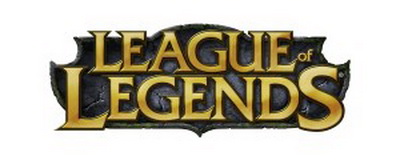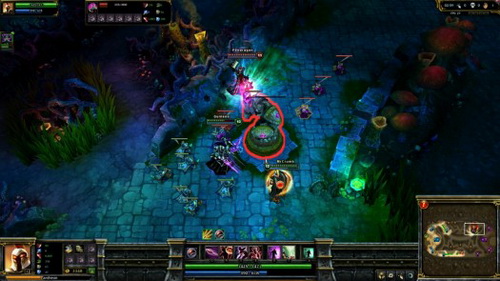《League of Legends》新机制引导免费游戏发展趋势
游戏邦注:本文作者为Eli Hodapp,他在文章着重解析了免费App Store游戏《League of Legends》。
我觉得我有必要专门抽出篇幅介绍《League of Legends》这款游戏,它完全颠覆了我对免费游戏的看法。《League of Legends》于2009年问世,出自Riot Games公司之手,是款免费PC游戏(游戏邦注:游戏还有OSX测试版,这个版本融入了大量巫术元素)。这款游戏的机制和《Defense of the Ancients》颇为类似,玩家采用团队形式体验游戏,或3v3或5v5,和《魔兽争霸3》主人公一样,玩家握有一支一流的军队。玩家可以通过晋升新等级获取各种各样能力,购买商店道具强化角色力量,以及参加邪恶的玩家间战斗,战斗以破坏对手团队基地为目的。这款颇具趣味,共有76支部队(截至本文发布,部队数量还持续增加),且每场游戏内容各不相同。
但PC游戏和App Store有什么关系呢?2009年10月,苹果调整了App Store的内置付费模式。之前只有付费应用才能采用内置付费模式。苹果此次调整为众多App Store免费游戏敞开了大门。首款采用该付费模式的游戏是《Eliminate》,接着便有众多游戏跟风而上。
这些免费iOS游戏的机制多半趋于一致,虽然有些游戏的机制体现得不如其他游戏明显。开发商创造一个游戏世界,玩家置身其中管理农场、办公室或者其他建筑,同时还能够为自己定制人物形象。这类游戏在社区中不受好评,因为它们一点儿也不像游戏,而更像是昂贵的定时关卡。
《League of Legends》的重要之处在于它呈现了风格迥异的免费体验模式。游戏中,玩家每周可以从76支军队中选择10支军队,免费体验。玩家可以凭此充分体验游戏,不论是免费体验游戏还是花钱解锁某个环节,玩家都不会具有特别优势,或者处于劣势地位。唯一限制在于10支军队若孤军奋战将处于劣势地位。
这个转变大大降低了玩家消费的强制性。例如,在《Smurfs’Village》(游戏邦注:这是款免费游戏)或其他类似游戏中,我得不情愿地掏钱购买Smurfberries,绕过恼人的定时关卡,这个掏钱前进模式让我尤为觉得这类游戏缺乏个人参与性,因为这些无穷无尽的限制因素使得我在体验中毫无主人翁感觉。
而《League of Legends》没有定时关卡和限制因素。相反,玩家每周可以随意免费测试军队,并可以从中挑选理想的队伍。玩家长期保留游戏解锁权限,同时还可以为游戏购买定制皮肤。体验这样一款游戏着实趣味横生,玩家因此也会更愿意在游戏中开展微交易。与花钱购买道具换取游戏顺利进展不同,该游戏玩家掏钱购买的是自己喜欢的商品。
游戏机制如今变得更加完善,玩家可以通过Riot Points或者Influence Points购买虚拟商品(游戏邦注:前者是通过现金购买,后者是通过通过体验赚钱,但进程较为缓慢)。Riot采用这个免费模式也获得了很大成功,公司目前正招贤纳士,努力扩充各个部门,因为《League of Legends》变得越发成功。
我很赞同iOS开发商从Riot的《League of Legends》获取灵感,学习如何开发免费游戏。我想如果开发商们能够采用同样的玩家购买喜爱商品模式(游戏邦注:而非原来的绕过定时关卡消费模式),那么社区玩家对于免费游戏持有的否定态度也会逐渐消失。
我对于《League of Legends》能够顺利入驻iOS平台持怀疑态度,因为设备界面实在太过复杂了,但如今iOS开发商们纷纷开始认真研究《League of Legends》,试图从中汲取可供未来开发iOS游戏借鉴的有效经验。事实上,如果你是iOS开发商,目前尚对免费游戏模式持怀疑态度,那么你至少应该考虑一下《League of Legends》机制。同样地,如果你经常发帖抒发自己对于免费游戏的厌恶之情,那么不妨体验一下这款完美诠释免费游戏模式的游戏,看看开发商们如何冲出农场类型游戏的重围。(本文为游戏邦/gamerboom.com编译,转载请注明来源:游戏邦)
The App Store Needs Freemium Games Like ‘League of Legends’
by Eli Hodapp
I figured I’d take a break from our regularly scheduled programming to discuss a game that completely changed the way I look at free to play games: League of Legends. Originally released in late 2009 by Riot Games, League of Legends is a free to play game available for the PC. (There’s also a very beta OSX client that takes a considerable amount of witchcraft and wizardry to get running.) Gameplay is very similar to Defense of the Ancients in that you play in teams, either 3v3 or 5v5, and have control of a single champion unit that behaves a lot like the hero units in Warcraft III. You can level up various abilities, buy items in a shop to enhance your character, and engage in some pretty wicked player vs player combat as each team attempts to destroy the opposing team’s base. It’s a ton of fun, and with 76 available champions (as of this posting, more are added constantly), each game is always vastly different.
But what does a PC game have to do with the App Store? Well, in October of 2009, Apple changed the way in-app purchases worked on the App Store. Previously, only apps that customers paid for were able to have in-app purchase. With this shift, Apple effectively opened the flood gates for freemium games on the App Store. The first major title to employ this purchase model was Eliminate, followed by a tidal wave of others.
The vast majority of these freemium iOS games all focus around the same style of gameplay, although some hide it substantially better than others. Developers craft a game world, and put you in charge of a farm, an office, or other settings where you’re able to slowly build up a customized representation of yourself within the game. These types of games have had an (understandbly) terrible reputation among our community because often they don’t feel like games as much as they feel like potentially costly time sinks.
Why League of Legends is important is because of how differently it presents the free to play model. Each week you’re given a selection of 10 of the 76 champions which you can play for free. From there, you have full access to the game and are at no advantage or disadvantage regardless of whether you’ve spent nothing or you’ve paid to unlock absolutely everything. The only restriction is the limitation of playing as one of those ten champions.
It’s absolutely incredible how much this shifts the player’s spending compulsion. For instance, in Smurfs’ Village [Free], or other similar games, I begrudgingly buy Smurfberries to bypass irritating time sinks, essentially exchanging my money for a feeling of progression in a game that I have very little personal investment in because the endless limitations never make me feel like I have any kind of ownership.
Alternatively, League of Legends has no time sinks, or limitations. Instead, you’re essentially given a weekly free and unlimited test drive of a selection of champions. If you find yourself really enjoying one, you can permanently unlock it, as well as buy customized skins for it. It’s just incredible how much more fun I have playing a game like this, and how much more willing I am to spend my money on microtransactions. Instead of plunking money down on something I feel obligated to buy to progress, I’m buying something I want to because I like it.
It gets better though, as these items you’re buying can either be unlocked with Riot Points which are purchased with money or Influence Points, which are earned by simply playing the game– Although at a substantially slower rate. This freemium model has been ridiculously successful for Riot as well, who is scrambling to find additional employees to ramp up all aspects of their company as League of Legends becomes more and more successful by the day.
I would absolutely love it if iOS developers looked to Riot’s League of Legends for inspiration on how to build their future free to play titles. I think the caustic attitude that many members of our community have towards freemium games would vanish if they employed a similar free to play model where players feel like they’re buying something they want, instead of just a in-game currency that is slowly drained by skipping time sinks which only exist to give players a reason to buy said in-game currency.
I doubt League of Legends will ever make it to iOS, as the interface is simply far too complex. However, nothing is stopping iOS developers from taking a good hard look at League of Legends and applying what they learn to future iOS titles. In fact, if you’re an iOS developer who is even remotely debating dabbling in freemium, you owe it to yourself to at least give League of Legends a shot. Similarly, if you’re the kind of person who incessantly posts about how much you dislike freemium games, you really need to try a game that nails the business model perfectly just to see what’s possible if developers break free of farming games. (Source:toucharcade)











































 闽公网安备35020302001549号
闽公网安备35020302001549号